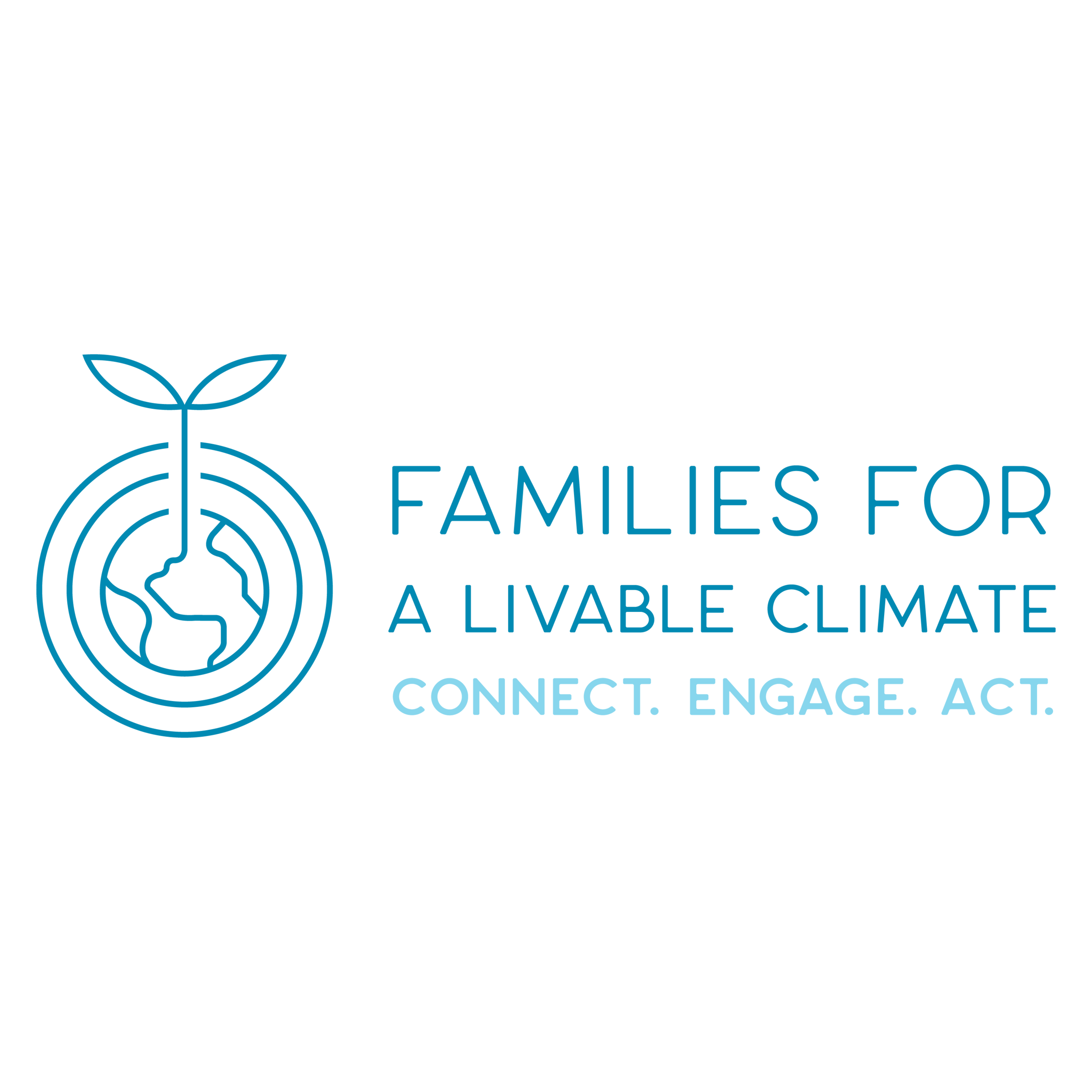VIDEO: Climate Conversations across Differences
70% of Americans say they are at least “somewhat worried” about global warming. 35% say they are “very worried.” But 61% of Americans say they “rarely” or “never” discuss global warming with family and friends. (Yale Climate Opinion Maps 2020)
How can we build overwhelming support for climate action if most of us don’t talk about it?
What does talking affect?
Last spring, Katharine Hayhoe (climate scientist and expert climate communicator) shared that it is absolutely critical to making a big impact. Imagine a circle of dominoes:
"To fix climate change, we have to knock over all the dominoes. What's the first domino? The first domino is having a conversation. Having a conversation triggers all of the other dominoes: to change what we think of ourselves, what people around us think, our social norms in our community, in our town, in our state, in our country, in our world; our sense of whether we actually can change anything, and ultimately, our ability and willingness to act." (Watch Hayhoe's entire talk from last April.)
Watch this special panel discussion on Climate Conversations Across Differences to hear success stories from the field, and learn about skills for bringing climate into your day-to-day conversations consistently, and with more confidence. Also, stay tuned to our upcoming events by joining our email list. We will be hosting more conversations and skills training throughout the year.
For a bit of fun during this free event, we used the new film, "Don't Look Up," as a jumping off point for our discussion. However, we removed those scenes from our recording to avoid copyright infringement issues on YouTube. You can view the film, and find the scenes on Netflix! The three scenes we shared during our discussion were, in this order:
1. Leonardo DiCaprio's character’s "What happened to us? How do we event talk to each other? How do we fix it?" talk show speech at around 1:30:29 in the film.
2. The moment when DiCaprio's character sees the comet and gets out of his car in the street around 1:35:04.
3. End of the dinner table scene around 2:04:26.
We are very grateful to our panelists: Dr. Cathy Whitlock, Dave Morris, and Associate Professor Nadia White for their participation. This event was co-sponsored by Families for a Livable Climate, Mountain Mamas, and Climate Smart Missoula, and Moms Clean Air Force Montana.
—
Climate Conversation Resources
“The first step to tackling climate change” recording featuring Dr. Katharine Hayhoe.
Katharine Hayhoe’s TED Talk: “The Most Important Thing You Can Do to Fight Climate Change”
Dave Morris’s blog from his Climate Courage bike tour.
Montana Climate Impacts
One helpful step can be to learn more about what’s at stake in Montana. This can help frame your personal stories around shared interests, and help reduce psychological distance to the issue. Dr. Cathy Whitlockis a co-author on both of these assessments.
Read the 2017 Montana Climate Assessment’s executive summary (or full report).
Read the 2021 Climate Change in Montana and Human Health Report key messages and recommendations (or the full report).
Of course, following the news is also helpful and learning the stories of impacted Montana families, such as the community of Denton and others impacted by the December 2021 fires.
Montana Climate Organizations and Solutions
Join us at Families for a Livable Climate, and help engage more families and caregivers on climate, and bring the family lens to important statewide issues, such as energy. Participating in one of our monthly welcome calls is a great way to connect with a few current members and learn more about our teams.
Learn more about Montana Mountain Mamas and their great work on public lands and climate!
Engage with Climate Smart Missoula’s local actions and efforts (and their Climate Action Venn Diagram).
Check out all the other climate groups and efforts in Montana!
—
PANELISTS
DAVE MORRIS instructs field courses for college students on climate, energy, and other conservation issues for the Wild Rockies Field Institute and other organizations. Besides academic/guiding work, Dave is active with several climate organizations in Montana. This fall he bicycled around the Western U.S. on the Climate Courage Tour to talk with Westerners about climate issues ahead of the Glasgow COP26 meetings.
Associate Professor NADIA WHITE is the director of the master’s program in Environmental Science and Natural Resource Journalism at the University of Montana. She teaches Climate Change and the Media as well as basic reporting and graduate classes on environmental journalism. As a reporter and editor at the Casper Star-Tribune she covered or oversaw coverage of mining and environmental issues. She worked for newspapers in Maine, Minnesota and Colorado.
DR. CATHY WHITLOCK is nationally and internationally recognized for her research and leadership activities in the field of past climate and environmental change. Cathy co-authored the 2017 Montana Climate Assessment, the 2020 Montana Climate Solutions Plan, the 2021 Climate Change and Human Health in Montana, and the Greater Yellowstone Climate Assessment released last June. In 2018, Cathy became the first person from a Montana university to be elected to the National Academy of Sciences.
